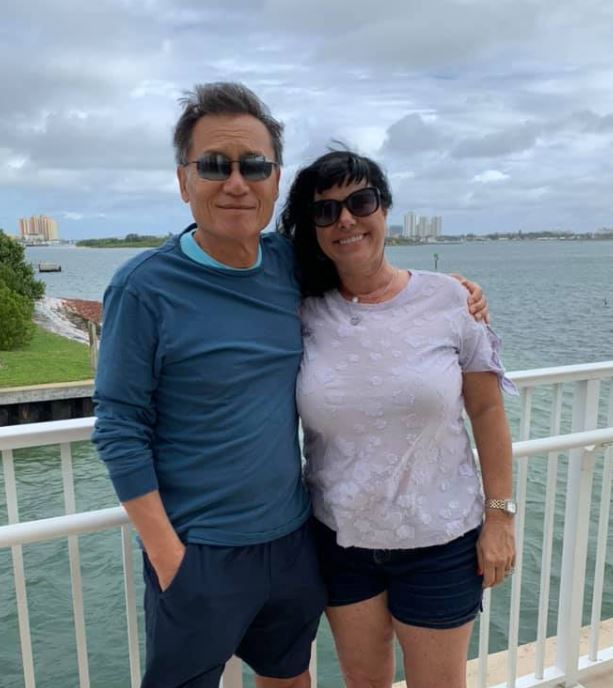The story of Lou Pai and Enron is one that captivates and educates about the complexities of corporate America. From his meteoric rise as a top executive in one of the most infamous companies in history to his dramatic fall from grace, Pai's journey serves as a case study in both ambition and ethical failures. In this article, we will delve into the life of Lou Pai, exploring his background, career at Enron, the controversies that surrounded him, and the lessons learned from his story.
Enron Corporation, once hailed as a titan of the energy industry, became synonymous with corporate fraud and bankruptcy in the early 2000s. Lou Pai, as the CEO of Enron's subsidiary, played a crucial role in the company's operations and strategy. However, his tenure also raises questions about accountability and corporate governance. This article will provide a comprehensive overview of Lou Pai's life, career, and the implications of Enron's collapse on the corporate world.
As we explore the intricate details of Lou Pai's involvement with Enron, we will also examine the broader context of corporate ethics and the importance of transparency in business practices. By the end of this article, readers will gain a deeper understanding of Lou Pai's impact on the corporate landscape and the lessons that can be learned from his story.
Table of Contents
- Biography of Lou Pai
- Early Life and Education
- Career at Enron
- Controversies and Legal Issues
- Impact on Corporate Governance
- Lessons Learned from Lou Pai's Story
- Conclusion
- Sources
Biography of Lou Pai
Lou Pai was born on January 30, 1958, in the United States. He graduated from the University of California, Berkeley, with a degree in economics before earning an MBA from the University of Chicago. His education laid the groundwork for his future career in finance and corporate management.
| Personal Information | Details |
|---|---|
| Name | Lou Pai |
| Date of Birth | January 30, 1958 |
| Education | University of California, Berkeley; University of Chicago (MBA) |
| Position at Enron | CEO of Enron X Generation |
Early Life and Education
Lou Pai's early life was marked by a strong emphasis on education and achievement. Growing up in California, he developed a keen interest in economics and business, which ultimately led him to pursue a degree at UC Berkeley. His academic prowess earned him a place at the University of Chicago, where he completed his MBA, further enhancing his credentials.
Career at Enron
Pai joined Enron in the early 1990s and quickly climbed the corporate ladder. He was appointed CEO of Enron's X Generation, which focused on energy and technology innovations. Under his leadership, the division experienced significant growth, contributing to Enron's overall success during its peak.
Leadership Style
Pai was known for his aggressive leadership style and willingness to take risks. He championed innovative projects and was instrumental in developing Enron's trading operations. However, this approach also contributed to a culture of secrecy and lack of accountability within the company.
Controversies and Legal Issues
Despite his successes, Lou Pai's career was marred by controversies. As Enron faced increasing scrutiny over its financial practices, Pai became embroiled in legal issues. He was accused of insider trading and selling millions of dollars worth of Enron stock before the company's collapse in 2001.
Insider Trading Allegations
The allegations of insider trading against Pai raised ethical questions about his actions as a corporate leader. Critics argued that he had a responsibility to shareholders and employees, which he failed to uphold. The fallout from these accusations further tarnished his reputation.
Impact on Corporate Governance
The Enron scandal had far-reaching implications for corporate governance and regulatory practices. It highlighted the need for greater transparency and accountability in corporate America. In the wake of the scandal, the Sarbanes-Oxley Act was enacted to enforce stricter regulations on financial reporting and corporate governance.
Lessons Learned from Lou Pai's Story
The story of Lou Pai serves as a cautionary tale for corporate leaders and aspiring executives. It underscores the importance of ethical leadership, transparency, and accountability in business practices. Companies must prioritize ethical behavior to maintain trust with stakeholders and avoid the pitfalls that can lead to catastrophic failures.
Conclusion
In summary, Lou Pai's career at Enron exemplifies the complexities of corporate leadership and the consequences of ethical lapses. His rise and fall serve as a reminder of the importance of integrity in business practices. As we reflect on the lessons learned from Pai's story, it is crucial for current and future leaders to prioritize transparency and ethical decision-making to foster a healthy corporate environment.
We encourage readers to share their thoughts on Lou Pai's impact on corporate governance and the lessons that can be learned from his story. Leave a comment below and explore more articles on corporate ethics and leadership.
Sources
- Healy, P. M., & Palepu, K. G. (2003). The Fall of Enron. Journal of Economic Perspectives, 17(2), 3-26.
- Hoffman, A. J. (2002). The Enron Effect: The Scandal and Its Aftermath. Business Ethics Quarterly, 12(3), 345-362.
- Sarbanes-Oxley Act of 2002. U.S. Government Publishing Office.




